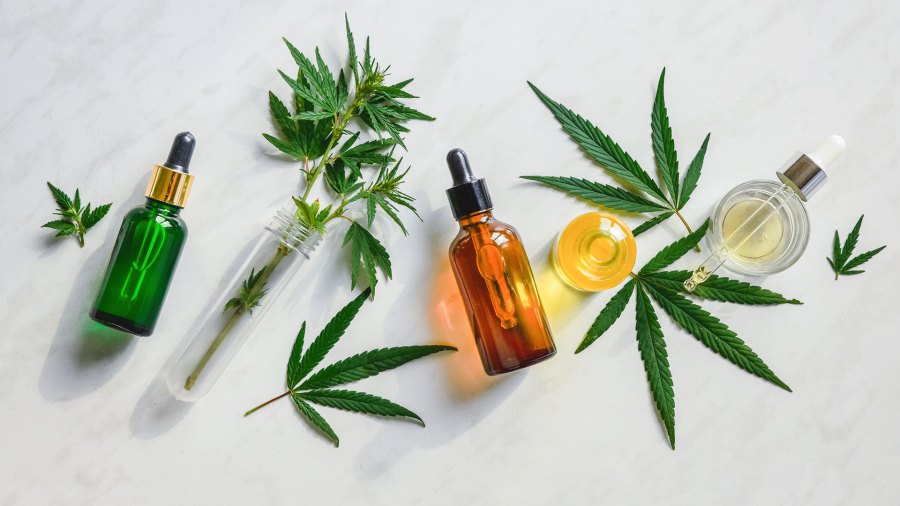
CBD, also known by its abbreviation, cannabidiol is a compound found naturally in cannabis. However, it is not subject to FDA regulation. However, CBD has become an increasingly popular ingredient in foods and beverages.
It is banned at the federal and state levels, but many states allow its usage. FDA has taken a cautious, restrictive approach to the regulation of this substance.
The agency has sent warning letters to companies who have made illegal claims about preventing, diagnosing or treating serious diseases, such as cancer. The company has also been accused by marketing CBD products as dietary products in the United States, despite the fact that they didn't meet the Federal Food, Drug and Cosmetic Act requirements.
Congress passed the Agriculture Improvement Act 2018 which took hemp and its compounds out of the Controlled Substances Act. This legal pathway allowed hemp producers to legally sell and obtain CBD products.

In an effort to curb the growing gray market, FDA issued warning letters for manufacturers of CBD-containing products. While many companies followed the FDA's orders and pulled their products from the marketplace, others continued to market their product without permission.
On Thursday, FDA announced that it had made a decision that could have major consequences for CBD-infused products manufacturers and growers. The FDA announced that it would seek Congress' approval to establish a new regulatory pathway regarding CBD.
FDA released a statement stating that it would be considering "risk management" strategies to manage CBD products. This includes labeling, age restrictions, content limits and age limitations. It says it is also examining safety issues related to CBD's effect on liver function, interaction with certain medications, the male reproductive and maternal systems, aswell as exposure among children.
Hemp fda News
The FDA received many questions regarding the safety and efficacy of CBD. This ingredient has been added in to a wide variety of food items and beverages over recent years. This includes flavoring yogurts, sweetened drinks, eliquids and candies, as well as teas and alcoholic beverages. It can be used as a biofuel and has been added to animal feed.
The FDA hasn’t approved CBD products as dietary supplement. Charlotte's Web and Irwin Naturals also failed to submit NDI notifications to the FDA, which would have permitted them to include CBD in their products.

The FDA declared in September that it would review all studies regarding CBD and reexamine its position on CBD dietary supplements. The FDA indicated that it is looking into information about CBD's potential to affect appetite and mood as well as its impact on liver function.
It is unclear what difference the FDA's announcement about CBD-infused products makes. They will likely continue to enforce existing policies. But some lawmakers have expressed their dissatisfaction with the agency's slow-moving approach to regulation and say that they are hopeful that a resolution can be found.
FAQ
What are the best CBD brands?
These are the top five CBD brands that we have handpicked based upon quality, reliability, as well as value.
They sell high-quality CBD oil products with less than 0.2% THC.
Our list of top CBD vendors worldwide is also recommended.
What are the best ways to use CBD?
CBD can be used as an alternative to anxiety treatment. It is also used to treat pain, insomnia, epilepsy, inflammation, depression, and other conditions.
CBD can be consumed in many different ways. CBD can be consumed in many ways.
CBD is a great option for many reasons. It has been shown to help people suffering from chronic pain, PTSD, anxiety, and more.
What are some common mistakes that companies make when they enter the US cannabinoid market?
Not understanding the regulations for cannabis products is a first mistake. This could be a sign that your product formulation needs to be changed.
The second mistake is not knowing how to properly label your product. Know whether your product contains THC, CBD or both.
Thirdly, you should understand how to package your product correctly. If your product contains THC, you need to ensure it is packed in child-resistant containers.
Even if your product doesn't contain THC, you must still comply with all packaging laws. There are many states in which cannabidiol is legal.
Finally, you should always keep track of any recalls on your products. It is crucial to notify customers as soon possible if you have a problem with your product.
Which states consume the most CBD?
The top three states are California, Colorado, and Oregon. These states have large numbers, high incomes, and low rates of unemployment. These states also have higher amounts of hemp farms than other States.
California leads the pack because its economy heavily depends on agriculture. It produces much of the nation's fruits and vegetables. This makes sense because cannabis is extracted from the same plants as hemp.
Oregon and Colorado follow closely behind as both states produce medical marijuana. California and Oregon, however, don't allow recreational use of marijuana.
Other states that rank highly includes Washington, New York, Florida, Illinois, Pennsylvania, Mississippi, and Texas.
Statistics
- The use of these products is likely to become even more widespread if the World Health Organization's recommendation that CBD no longer is scheduled in the international drug control conventions is adopted by the United Nations member states [201]. (ncbi.nlm.nih.gov)
- The inhibition of FAAH is predicted to lead to an increase in brain and plasma concentrations of AEA, which acts as a partial agonist at CB1R and CB2R, thereby increasing endocannabinoid tone [92, 110]. (ncbi.nlm.nih.gov)
- CBD seems unlikely to directly influence sleep in healthy humans [115] (and maybe “sleep-promoting” in those with certain comorbid conditions) (ncbi.nlm.nih.gov)
- While the primary injury may not be treatable, interventions that attenuate secondary sequelae are likely to be of benefit [203].Only one study (ncbi.nlm.nih.gov)
- however, one study also found that these effects were virtually abolished when the original media (a nutrient broth agar) was replaced with one containing 5% blood (increasing the minimum concentration to ~160 μM CBD) [179]. (ncbi.nlm.nih.gov)
External Links
How To
What are the main issues with the CBD industry.
The current market for CBD-based products is expanding at a phenomenal rate. However, there are still many challenges facing businesses looking to enter this space. These include a lack of consumer awareness, high cost of entry, limited access to capital, and regulatory uncertainty.
Many consumers don't understand what CBD is and how it works. This means they are not able to make informed choices about whether or no to purchase CBD products.
Most CBD companies rely heavily upon word-of mouth marketing. This can be costly as it involves advertising and staffing to promote the brand.
Another problem for new entrants to CBD is the high price of production. High prices are a major problem for CBD products because of the high cost of raw materials. CBD oil is made from hemp that has been grown in particular climates.
Growing enough hemp to make CBD oil takes around $1,000 per acre. Because of this, many small farmers are unable to afford to grow enough hemp for CBD oil.
A lack of capital access is another problem that CBD market newcomers face. Many people who want to start a business are discouraged by banks due to the stigma associated with the industry.
Finally, there is regulatory uncertainty surrounding the sale of CBD products. There are currently no clear guidelines regarding how CBD products should be marketed.
While some states have passed legislation restricting CBD products' sale, it has not been adopted as a national policy.
Only two states, Nevada and Maine, have yet to legalize recreational marijuana.
However, some states like Massachusetts and Michigan are considering similar measures.
These changes could mean that CBD manufacturers will be more competitive.
As a result of these factors, many entrepreneurs choose to work from home rather than start a physical business.